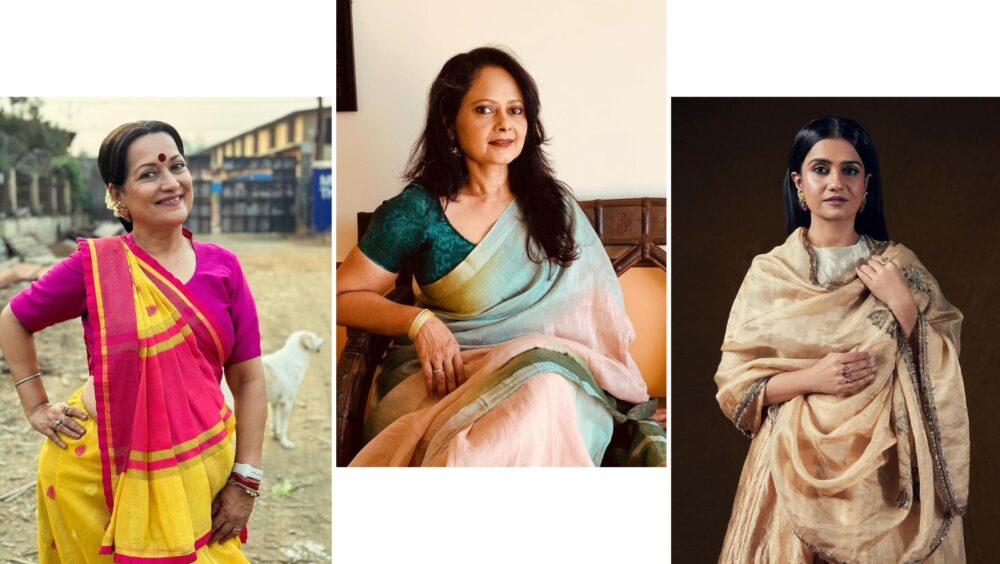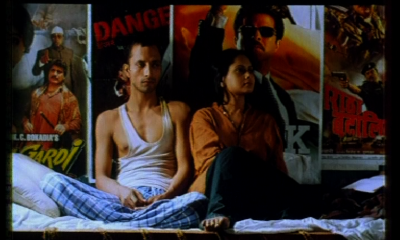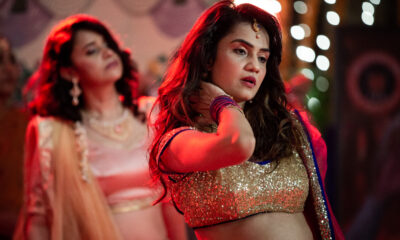Latest
Amruta Subhash, Sadiya Siddiqui, Himani Shivpuri discuss powerful portrayals in modern Indian theatre
They also discuss the challenges women practitioners still face.
Published
2 months agoon

Contemporary Indian theatre has frequently disrupted the male gaze and told stories from a woman’s perspective. Be it Mohan Rakesh’s ‘Adhe Adhure ‘, Vijay Tendulkar’s ‘Shantata! Court Chalu Aahe’, Prabhakar Laxman Mayekar’s ‘Agnipankh’, Manjula Padmanabhan’s ‘Lights Out’, Purva Naresh’s ‘Ok Tata Bye Bye’ or Jaywant Dalvi’s ‘Purush’, there has been no death of female protagonists who have dared to break the stereotypical moulds. On International Women’s Day, Zee Theatre’s stars hold forth on how they see the progression of gender-sensitive and subversive narratives on stage. And if women still face specific challenges or discrimination while working in theatre.
Sadiya Siddiqui who has narrated Saadat Hasan Manto’s feminist story ‘Hatak’ in Zee Theatre’s literary anthology ‘Koi Baat Chale’ says, “In recent times, a solo performance titled ‘Maas’ by Mumbai-based artist Jyoti Dogra has been a path-breaking theatrical experience. In theatre, women practitioners still come up against certain challenges. For instance, a friend who is a designer was working on a production, and the men in the crew refused to listen to her request to shift the lights. She had to call her male friend to intervene. Such problems happen even in these times.”
Also read: Actress Madhurima Tuli: “People can pull you down, but you have to just move on in life”
Veteran actor Himani Shivpuri who stars in Zee Theatre’s ‘Hamidabai Ki Kothi’ believes that in theatre, strong women characters are not exactly an exception. She adds, “On stage, I’ve always played very strong women in plays like Krishna Sobti’s ‘Mitro Marjani’ that spoke about physical desire without hesitation even though in our society, it is taboo for women to talk about these things. In Mohan Rakesh’s, ‘Aadhe Adhure’, we see a working woman who seeks fulfilment outside marriage. You can explore such themes more often in theatre than in cinema or television.”
She recalls Zee Theater’s teleplay ‘Rishton Ka Live Telecast’ where she played a typical housewife who everybody takes for granted and says, “However my character speaks up about her sacrifices and how much she has had to give up to raise a family that now has no time for her. ” She has also done solo performances based on author Manu Bhandari’s feminist story, ‘Stri Subodhini’ and worked in Begum Qudsia Zaidi’s play ‘Aazar Ka Khwab’, an adaption of George Bernard Shaw’s ‘Pygmalion’ where she played a flower seller who won’t give up her authentic self even after being transformed by a professor into a sophisticated begum. In her recent play ‘Jeena Isi Ka Naam Hai’, she once again plays a spirited woman who despite the betrayal of her husband and ill health forges a friendship with a doctor in a sanitorium.
Also read: “Every man should embody a bit of femininity”, says Ayushmann Khurrana at FICCI Frames 2024
About gender-specific challenges, Himani says, “As it happens in every profession, a woman has to prove in theatre too that she is not just a pretty face, but also talented. She has to prove her worth much more than her male colleagues. And there are people out there who do want to take advantage of you because they think women are the weaker sex. We just have to be strong and I think women do have the strength to rise above their setbacks.”
Well-known theatre, OTT, and film actor Amruta Subhash agrees with Himani that contemporary plays are addressing current issues and representing modern women effectively. She explains, “For example, in ‘Perfect Match,’ I portrayed a woman who challenges societal norms by choosing not to marry. Similarly, ‘Phir Se’ tackles issues such as the lack of time in modern marriages. However, there are still many plays rehashing old themes, which can be disheartening. Nonetheless, there is a growing audience for stories that reflect modern concerns, offering hope for more diverse representation in theatre.”
Also read: Huma Qureshi to headline film based on an auto rickshaw driver produced by Vishal Rana and Jio Studios
The actor who has worked in Zee Theatre’s teleplay Hamidabai Ki Kothi cites playwrights like Vijay Tendulkar, Mohan Rakesh, and Girish Karnad as path-breakers with works that defy traditional gender roles. She says, ” Characters such as Leela Benare in ‘Shantata! Court Chalu Aahe’ and Savitri in ‘Adhe Adhure’ are portrayed as complex, modern women rather than stereotypes. However, women in performing arts still encounter resistance when portraying characters that challenge societal norms. For instance, depicting a female character as an alcoholic may face backlash due to entrenched gender stereotypes. There’s a need for more inclusive and diverse representations of women on stage, breaking free from restrictive societal expectations and allowing for more authentic storytelling.”






